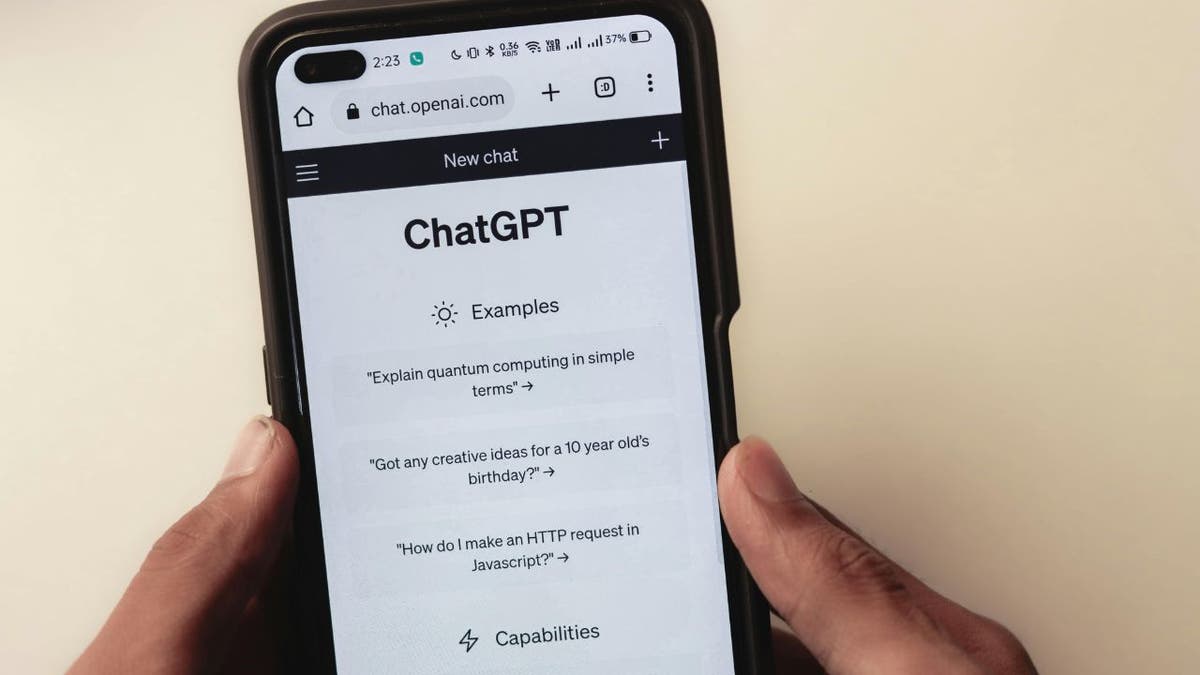
NEWYou can now listen to Fox News articles!
Artificial intelligence (AI) and large language models (LLMs), such as ChatGPT, are transforming how we learn. But what does this mean for AI and learning retention? While these tools provide instant answers and personalized support, experts are beginning to question whether this convenience might actually reduce our ability to retain knowledge in the long term.
Sign up for my FREE CyberGuy Report
Get my best tech tips, urgent security alerts, and exclusive deals delivered straight to your inbox. Plus, you’ll get instant access to my Ultimate Scam Survival Guide – free when you join my CYBERGUY.COM/NEWSLETTER.

ChatGPT app on a smartphone. (Kurt “CyberGuy” Knutsson)
AI-powered platforms can personalize education by adapting to each learner’s pace, style, and needs. This tailored approach is credited with boosting engagement and, in some cases, improving retention rates by up to 30%. Features like adaptive quizzes, intelligent tutoring, and spaced repetition are designed to reinforce memory and help information stick. For students who struggle with traditional methods, AI can break down barriers, making learning more accessible and inclusive.
However, recent research suggests that the very convenience AI offers may undermine long-term learning retention. In a series of experiments at the University of Pennsylvania’s Wharton School, participants who used LLMs like ChatGPT to research topics showed weaker understanding and produced less original insights compared to those who used traditional search engines. The reason? AI often delivers concise, ready-made answers, reducing the need for active engagement, critical thinking, and synthesis-key ingredients for lasting learning.
A similar pattern emerged in a 2024 study involving high school students: those who relied on AI tools performed better on immediate assignments but scored lower on later tests that required recall and understanding without AI assistance. The researchers found that passive use of AI, simply asking for answers, can lead to superficial learning, where information is quickly forgotten.

ChatGPT being used on a laptop. (Kurt “CyberGuy” Knutsson)
Experts point to a “motivation problem.” When learners believe AI is smarter than they are, they may stop putting in effort, leading to shallower processing and weaker retention. Over-reliance on AI can also reduce opportunities to practice critical thinking and problem-solving, skills that are essential for deep, durable learning.
Despite these concerns, AI is not inherently bad for learning. When used thoughtfully, such as prompting students to critique AI-generated drafts or ask probing questions, AI can encourage deeper engagement and support retention. The key is to integrate AI as a supplement, not a substitute, for active learning and human guidance.
Educators play a vital role in this balance. By designing lessons that require students to interact with AI critically and reflect on what they learn, teachers can harness AI’s benefits while minimizing its drawbacks.

ChatGPT running on a smartphone. (Kurt “CyberGuy” Knutsson)
If you eat a bunch of candy all the time, you are likely going to gain weight and help your dentist with a car payment when cavities show up. AI is a lot like candy. Moderation is the name of the game. Using AI in smart ways rather than in abundance replacing your own critical thinking can be bad for your health.
AI is reshaping education, offering unprecedented personalization and accessibility. Yet, when it comes to learning retention, the way we use AI matters as much as the technology itself. Passive reliance on AI tools can erode deep understanding, but strategic, active engagement can turn AI into a powerful ally for lasting learning. As AI continues to evolve, fostering critical thinking and self-directed learning will be essential to ensure that knowledge doesn’t just come quickly-but sticks for the long haul.
What balance should we strike between leveraging AI’s convenience and preserving the value of human effort in learning? Let us know by writing to us at Cyberguy.com/Contact.
Sign up for my FREE CyberGuy Report
Get my best tech tips, urgent security alerts, and exclusive deals delivered straight to your inbox. Plus, you’ll get instant access to my Ultimate Scam Survival Guide – free when you join my CYBERGUY.COM/NEWSLETTER.
Copyright 2025 CyberGuy.com. All rights reserved.



